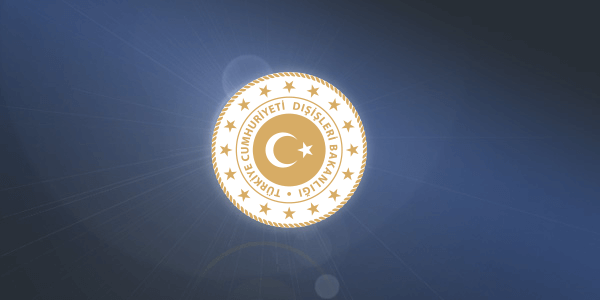- Press Release Regarding the Postponement of Antalya Diplomacy Forum Turkish Embassy In Singapore 17.02.2023
- ANNONCEMENT Turkish Embassy In Singapore 13.02.2023
- VACANCY ANNOUNCEMENT Turkish Embassy In Singapore 10.02.2022
- V. International Symposium of Mount Ağrı and Noah’s Ark on 16-18 October 2019 Turkish Embassy In Singapore 11.10.2019
- No: 35, 18 February 2026, Regarding the Participation of H.E. Hakan Fidan, Minister of Foreign Affairs of the Republic of Türkiye, in the Meeting of the Board of Peace Republic Of Türkiye Ministry Of Foreign Affairs 18.02.2026
- No: 34, 15 February 2026, Regarding the Decision of the Israeli Government on Land Registration in the West Bank Republic Of Türkiye Ministry Of Foreign Affairs 15.02.2026
- No: 33, 13 February 2026, Regarding the Resolutions Adopted by the European Parliament Containing Baseless Allegations Concerning Türkiye Republic Of Türkiye Ministry Of Foreign Affairs 13.02.2026
- No: 32, 13 February 2026, Regarding the Parliamentary Elections in Bangladesh Republic Of Türkiye Ministry Of Foreign Affairs 13.02.2026

Sadık Arslan
Ambassador
Monday - Friday
09:00 - 12:30 / 14:00 - 18:00
Applications to Consular Section 09:00 - 12:00 13:00 - 16.00
Holidays 2026
| 1/2/2023 | 1/2/2023 | New Year's Day |
| 1/24/2023 | 1/24/2023 | Chinese New Year |
| 4/7/2023 | 4/7/2023 | Good Friday |
| 4/22/2023 | 4/22/2023 | Hari Raya Puasa |
| 5/1/2023 | 5/1/2023 | Labour Day |
| 6/2/2023 | 6/2/2023 | Vesak Day |
| 6/29/2023 | 6/29/2023 | Hari Raya Haji |
| 8/9/2023 | 8/9/2023 | National Day of Singapore |
| 10/29/2023 | 10/29/2023 | Turkish National Day |
| 11/13/2023 | 11/13/2023 | Deepavali |
| 12/25/2023 | 12/25/2023 | Christmas Day |
+ 90 312 292 29 29






 INVEST IN TÜRKİYE
INVEST IN TÜRKİYE